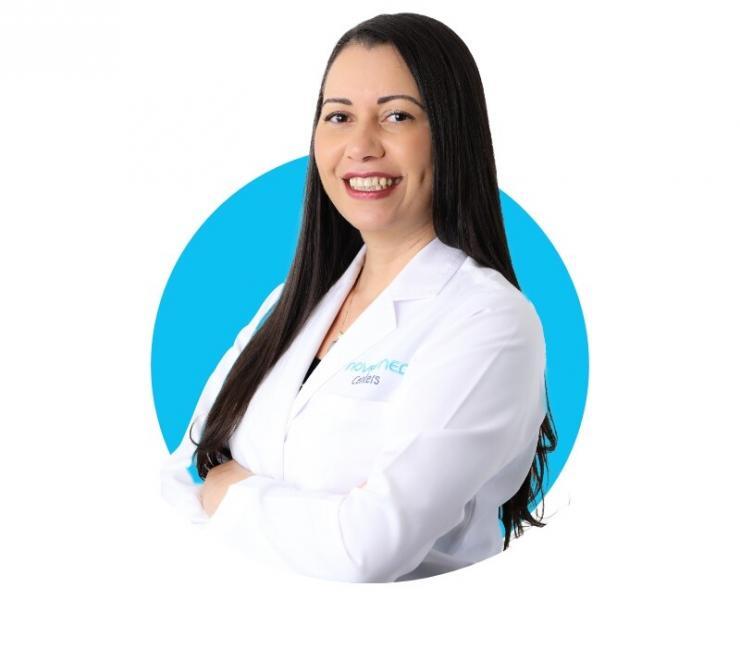Wet Macular Degeneration Treatment in Dubai, Abu Dhabi and Al Ain
Overview
Wet macular degeneration is an eye disease that causes blurred vision or a blind spot in your visual field. Generally, this condition is caused by abnormal blood vessels leaking fluid or blood to the retinal macula, which is the part of the eye responsible for central of vision.
Early detection and treatment may reduce vision loss or even, in some cases, restore vision.
What are the symptoms of wet macular degeneration?
Symptoms of wet macular degeneration usually appear suddenly and worsen quickly.
They may include:
- Visual distortions (impaired vision)
- Decreased central vision in one or both eyes
- Decreased color intensity or brightness
- A well-defined blurry or blind spot in the field of vision
- The need for bright light when reading or doing close-up work
- Vision difficulties in dimly lit places
- Difficulty recognizing faces
Wet macular degeneration does not affect the peripheral vision, nor does it cause total blindness on its own.
You should visit an ophthalmologist as soon as you notice changes in your central vision or ability to recognize colors and small details.
What is the cause of wet macular degeneration?
The exact cause of wet macular degeneration remains to be known, but it affects people who have had dry macular degeneration. Of all people with age-related macular degeneration, about 10% have wet macular degeneration.
Wet macular degeneration develops in several ways, such as:
- Vision loss due to the growth of abnormal blood vessels. Sometimes these blood vessels grow from the choroid to under and into the macula. The choroid is a layer of blood vessels located between the retina and the outer covering of the eye (sclera). Blood or fluid may leak from these abnormal blood vessels, disrupting the function of the retina.
- Vision loss due to fluid accumulation in the back of the eye. When fluid leaks from the choroid, it accumulates between the thin cell layer called the retinal pigment epithelium and the retina. This causes a bump to appear in the macula, which causes vision loss or distortion.
What are the risk factors of wet macular degeneration?
- Age. Macular degeneration is more common in people over the age of 50.
- Genetics. Macular degeneration has a genetic component, and researchers have identified many genes associated with the condition.
- Race. Macular degeneration affects Caucasians more than any other race.
- Smoking. Tabaco smoking or frequent exposure to smoke increases the risk of developing macular degeneration.
- Obesity. Research suggests that obesity may increase the chances of worsening early or moderate macular degeneration into a more severe condition.
- Cardiovascular diseases. If you have diseases that affect your heart and blood vessels, your risk of developing macular degeneration may increase.
How is wet macular degeneration treated?
Treatments are available and they may help slow the progression of the disease and recover some of the lost vision if started early enough.
Medical treatment
Medicines may help stop the growth of new blood vessels by blocking the growth signals that the body sends to generate new blood vessels. These medications are considered the preferred treatment for all stages of wet macular degeneration.
The doctor injects the medications into the affected eye. You may need an injection every four weeks to maintain the effect of the medicine. In some cases, you may partially restore vision as the blood vessels shrink and the fluid under the retina is absorbed, allowing the retinal cells to restore some functions.
Other treatments
- Photodynamic therapy. This procedure treats abnormal blood vessels in the center of a macula. During photodynamic therapy, your doctor injects a drug into a vein in your arm, which travels to the blood vessels in your eye. Your doctor aims a special type of laser at the abnormal blood vessels in your eye. This activates the drug, which causes the abnormal blood vessels to close, thus stopping the leakage.
Photodynamic therapy may improve your vision and reduce vision loss. You may need repeated treatments over time because the treated blood vessels may open again.
After undergoing photodynamic therapy, you will need to avoid direct sunlight and bright lights until the medicine leaves your body, which may take a few days.
- Photocoagulation. During photocoagulation therapy, your doctor uses a high-energy beam to block the abnormal blood vessels under the macula. This procedure prevents vessel bleeding with the goal of minimizing further damage to the macula. It should be noted that blood vessels may regrow, requiring further treatment.
- Visual impairment rehabilitation. Wet macular degeneration does not affect peripheral vision and usually does not cause total blindness. However, it can significantly reduce or eliminate your central vision, which is crucial for driving, reading, and recognizing people’s faces. It may be helpful for you to work with our ophthalmologist. They can help and advise you on the best ways to adapt to your changing vision.
Book your appointment in Novomed today!
If you are experiencing any wet macular degeneration symptoms, book your consultation with our ophthalmology doctor in Dubai, and they will help with a personalized treatment plan to slow down the progression of the disorder and manage its symptoms.
Book your appointment by calling toll-free 8006686, filling out the booking form, or clicking the live chat icon at the bottom of the screen.

